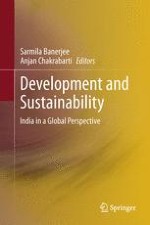2013 | OriginalPaper | Buchkapitel
17. Sustainable Poverty Reduction: Credit for the Poor
verfasst von : Asis Kumar Banerjee
Erschienen in: Development and Sustainability
Verlag: Springer India
Aktivieren Sie unsere intelligente Suche, um passende Fachinhalte oder Patente zu finden.
Wählen Sie Textabschnitte aus um mit Künstlicher Intelligenz passenden Patente zu finden. powered by
Markieren Sie Textabschnitte, um KI-gestützt weitere passende Inhalte zu finden. powered by
